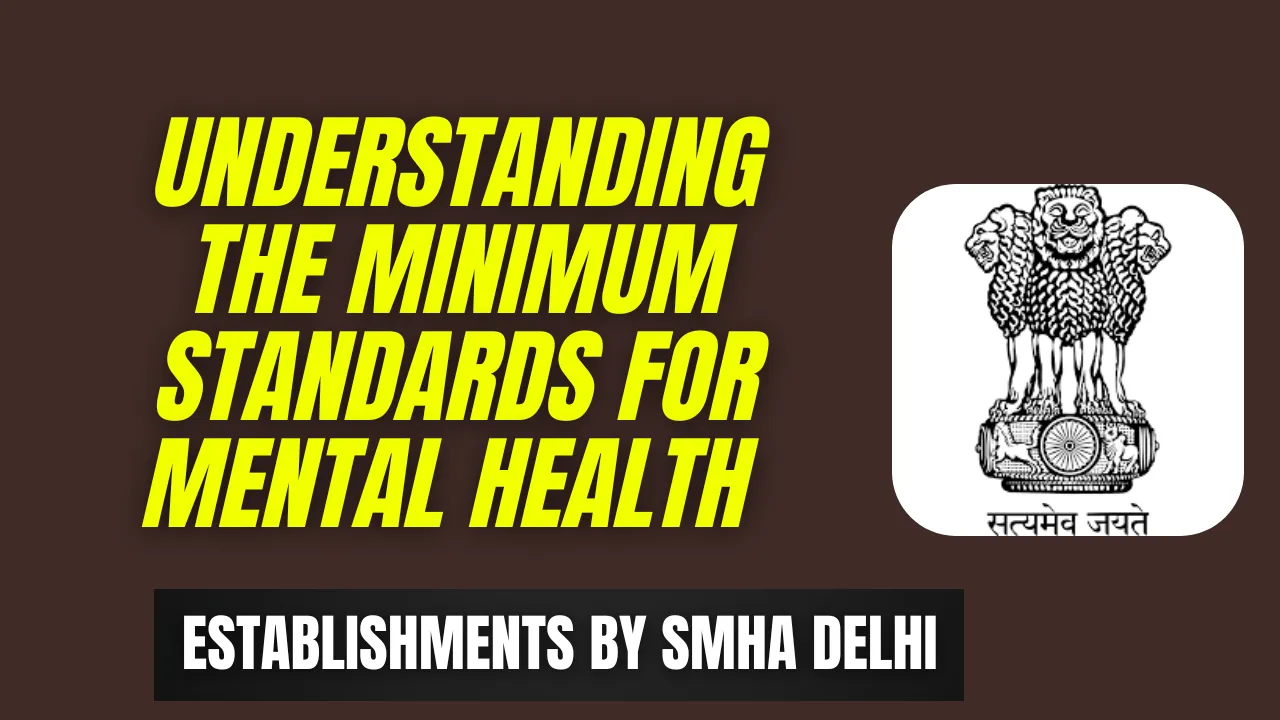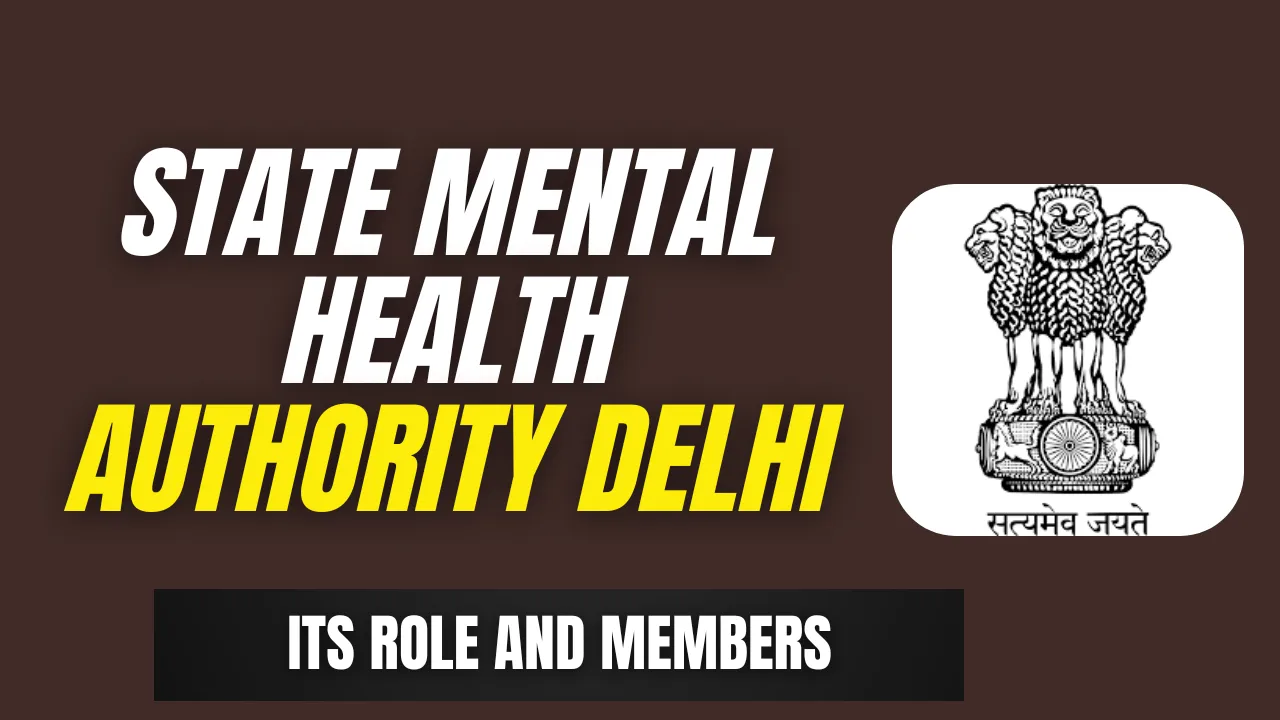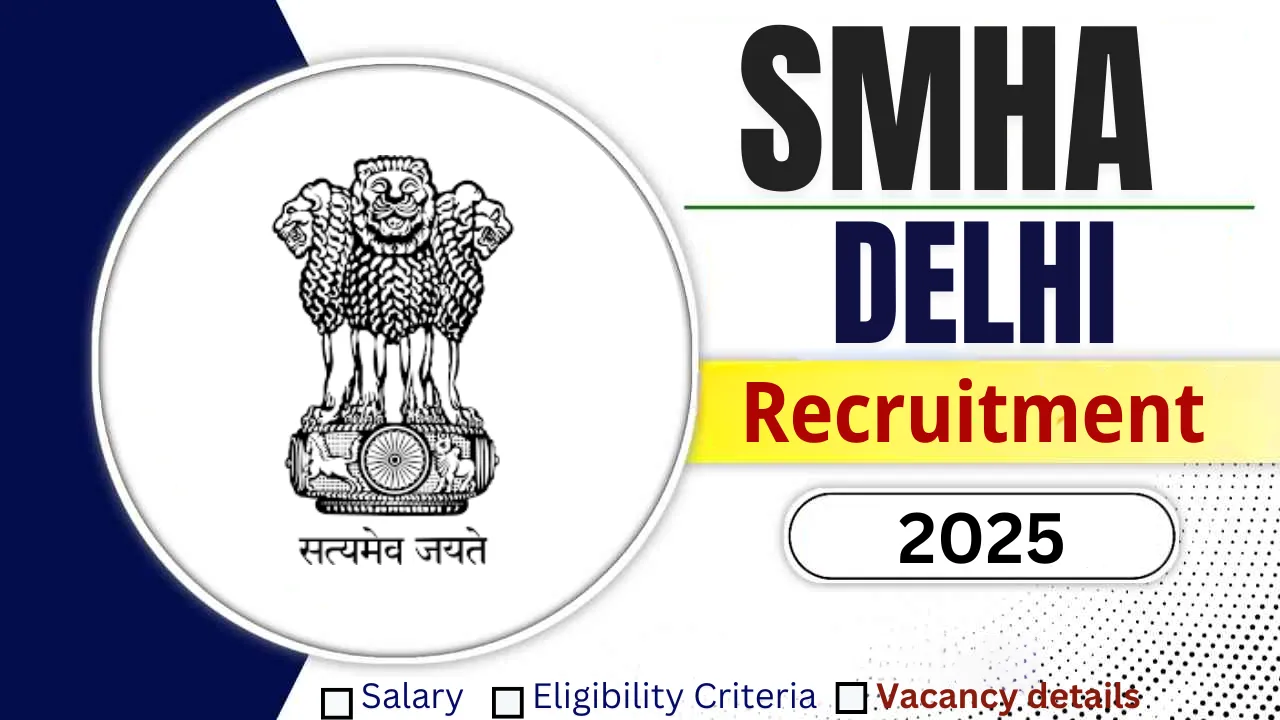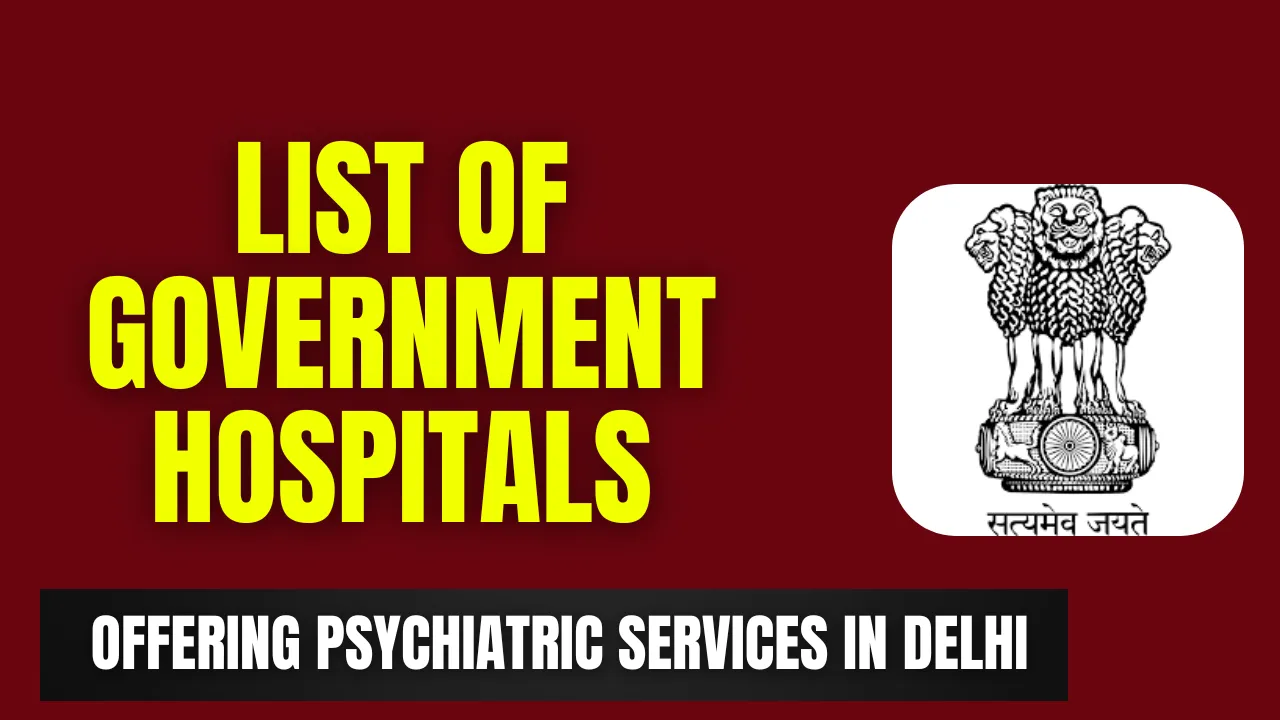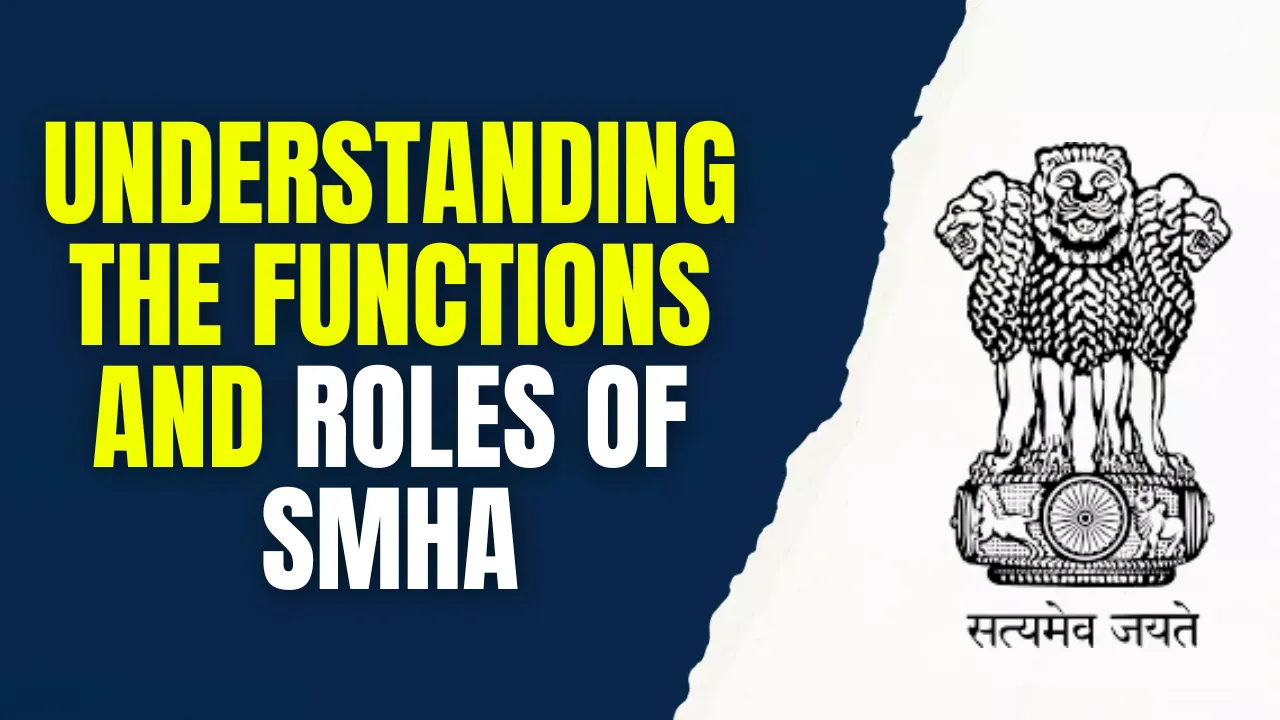SMHA Delhi: Ensuring quality mental health care is a growing priority in India, especially in cities like Delhi where the demand for mental health services is on the rise. To address this need, the State Mental Health Authority (SMHA) in Delhi has established minimum standards for mental health establishments. These standards are aimed at ensuring that all mental health facilities adhere to uniform guidelines for infrastructure, staffing, treatment protocols, and the protection of patients’ rights. By setting these standards, SMHA aims to improve the quality of care and safeguard the rights of individuals seeking mental health services.
This article explores the minimum standards set by SMHA for different types of mental health establishments, including psychiatric nursing homes, de-addiction centers, and rehabilitation facilities. It also looks into the challenges faced by these facilities in complying with these standards and the role of SMHA in monitoring compliance.
Overview Table
| Aspect | Details |
| Governing Body | State Mental Health Authority (SMHA), Delhi |
| Objective | To standardize and improve mental health care |
| Coverage | Psychiatric nursing homes, de-addiction centers, rehabilitation facilities |
| Key Standards | Infrastructure, staffing, treatment protocols, patients’ rights |
| Compliance Monitoring | Accreditation, inspections, penalties |
Overview of Minimum Standards for Mental Health Establishments
The minimum standards set by SMHA Delhi are designed to ensure that mental health establishments provide safe, ethical, and effective care to patients. These standards apply to a range of facilities, including psychiatric nursing homes, rehabilitation centers, and de-addiction facilities. They focus on various aspects such as infrastructure, staffing qualifications, hygiene, and treatment protocols. The primary aim is to create a consistent level of care across all mental health establishments in Delhi, making mental health services both accessible and reliable.
Importance of Standardization in Psychiatric Care
Standardization is crucial for maintaining quality in psychiatric care. It ensures that all patients receive similar levels of treatment and safeguards their rights during the treatment process. Moreover, having uniform standards helps SMHA monitor compliance more effectively, enabling timely interventions when facilities fall short. Standardization also helps build trust among patients and their families by ensuring that mental health establishments operate transparently and ethically.
Minimum Standards for Mental Health Establishments
Infrastructure Requirements
Mental health establishments must have adequate facilities, including separate consultation rooms, secure wards for high-risk patients, and emergency care units. The physical environment should be clean, safe, and conducive to treatment, with proper lighting, ventilation, and access to open spaces for patients.
Staffing and Qualifications
Facilities must employ qualified mental health professionals, including psychiatrists, clinical psychologists, psychiatric nurses, and social workers. All professionals must be registered with SMHA and must undergo regular training to stay updated on best practices in mental health care.
Hygiene and Safety Standards
Maintaining hygiene is a critical part of ensuring patient safety. This includes regular cleaning of wards, proper waste disposal, and availability of emergency medical equipment. Safety measures such as fire extinguishers, emergency exits, and surveillance systems should also be in place.
Rights of Patients and Consent Procedures
All mental health establishments must uphold patients’ rights, including the right to informed consent, confidentiality, and protection from abuse. Consent for treatment must be obtained in writing, and patients should be fully informed about their diagnosis, treatment options, and associated risks.
Minimum Standards for Centers Providing Substance Use Disorder Treatment and Rehabilitation
Infrastructure and Facilities
Treatment centers must have separate residential and outpatient facilities, with adequate space and resources for therapy, detoxification, and recreational activities. Rooms should be well-ventilated and equipped with basic amenities to ensure a comfortable stay for patients.
Safety and Emergency Care Provisions
Facilities must have protocols for managing medical emergencies, especially during detoxification. This includes access to a general physician, emergency medical equipment, and a trained medical team available round the clock.
Treatment Protocols and Approaches
Treatment must be based on evidence-based approaches such as cognitive-behavioral therapy, medication-assisted treatment, and motivational interviewing. Personalized treatment plans should be developed for each patient, focusing on their specific needs and recovery goals.
Detoxification and Rehabilitation Guidelines
Detoxification must be conducted under strict medical supervision, with protocols for monitoring vital signs and managing withdrawal symptoms. Following detoxification, facilities should offer comprehensive rehabilitation programs, including therapy, life skills training, and vocational support.
Aftercare and Follow-Up Services
Effective rehabilitation includes robust aftercare services, such as follow-up consultations, support groups, and relapse prevention programs to ensure sustained recovery and reintegration into society.
Minimum Standards for Different Categories of Psychiatric Nursing Homes
Category A: Long Stay Homes (LSH)
Long stay homes cater to patients who require extended care. They must provide adequate living space, continuous medical supervision, and access to therapy and recreational activities. Legal compliance and regular reporting to SMHA are also required.
Category B: Half-Way Homes (HWH)
Half-way homes offer transitional care for patients preparing to return to the community. These facilities must focus on skill development, counseling, and support services to help patients adjust to everyday life.
Category C: General Hospital Psychiatric Units (GHPU)
These units must have emergency care facilities and trained staff capable of handling acute psychiatric crises. They should also coordinate with general healthcare services for managing co-existing medical conditions.
Category D: De-Addiction Centers
De-addiction centers must follow specialized protocols for treating substance use disorders. This includes maintaining privacy and confidentiality for patients and adhering to detoxification and rehabilitation guidelines set by SMHA.
Accreditation and Compliance Monitoring
Role of SMHA in Accreditation
SMHA is responsible for accrediting mental health establishments based on their compliance with the minimum standards. Accreditation ensures that these facilities maintain the required standards of care and operate ethically.
Penalties for Non-Compliance
Facilities that fail to meet the standards may face penalties, including fines, suspension of licenses, or legal action. SMHA conducts regular inspections to monitor compliance and takes necessary action against establishments found violating the standards.
Challenges in Implementing Minimum Standards
Funding and Resource Constraints
One of the major challenges is the limited funding available for upgrading infrastructure and hiring qualified staff. Many facilities struggle to meet the standards due to financial constraints.
Training and Capacity Building for Staff
There is a need for regular training programs to ensure that the staff is well-equipped to handle complex mental health cases. Collaborations with educational institutions can help in building capacity and improving service quality.
Coordination with Government and NGOs
Effective implementation of standards requires better coordination between SMHA, government departments, and NGOs involved in mental health care. Streamlining protocols for coordination can enhance service delivery.
Conclusion
The minimum standards set by SMHA Delhi are crucial for ensuring quality and ethical care in mental health establishments. These standards cover a broad spectrum, from infrastructure and staffing to treatment protocols and patients’ rights.
While challenges like funding and compliance remain, a stronger regulatory framework and increased support for mental health facilities can significantly improve the quality of care. Ensuring compliance with these standards will not only enhance patient outcomes but also build greater trust in the mental health care system.
Frequently Asked Questions (FAQs)
What are the key standards for mental health establishments?
Key standards include adequate infrastructure, qualified staff, proper treatment protocols, and protection of patients’ rights.
How does SMHA ensure compliance with standards?
SMHA conducts regular inspections and accreditation to ensure that facilities comply with the standards set under the Mental Healthcare Act, 2017.
What are the penalties for non-compliance?
Penalties include fines, suspension of licenses, and, in severe cases, legal action against the establishment.
How can a facility apply for accreditation?
Facilities must submit an application to SMHA along with documents proving compliance with the required standards.
What challenges do mental health establishments face in Delhi?
Key challenges include limited funding, shortage of trained staff, and difficulty in complying with stringent regulatory standards.
